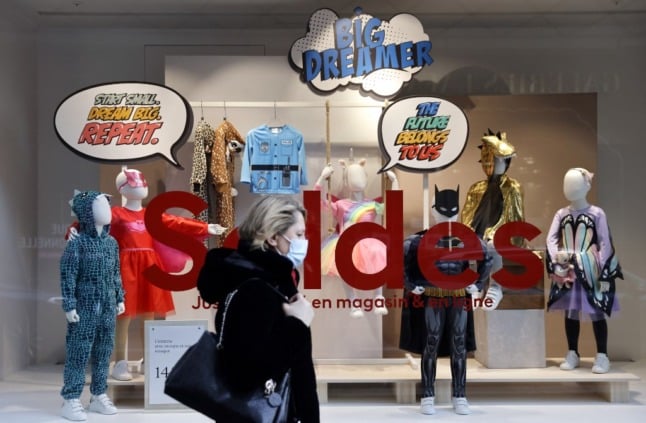In France Burger King’s new advert for its bacon burger has been raising eyebrows – and fits of giggles – among English-speakers thanks to its unfortunate use of English.
The advert is announcing the return of the Bacon Lover burger and attempts a pun on the popular phrase ‘faire son come-back‘ – although come-back is an anglicism, the phrase faire le come-back is widely used in France, especially among younger people.
Je…what? pic.twitter.com/5nADzDwvxu
— Phineas Rueckert (@PhineasJFR) November 24, 2021
The advert’s copywriters then attempted to add in a bacon pun and ended up with the strapline Il fait son come-bacon (it’s made its come-back).
Unfortunately, ‘come’ in English is also widely used as a slang term for both orgasm and semen, so for native speakers of English, the advert appeared to be for a ‘semen bacon burger’ – leading to it being widely shared and mocked on social media.
And it’s not the only example of the addition of English words that make French marketing slightly surprising.
Likewise this French bookstore’s attempt to pun on the English word ‘book’ leads to a rather aggressive ambience.
Gotta love the inviting name of this book store. Scram, potential customers! pic.twitter.com/OhcKunpklO
— Phineas Rueckert (@PhineasJFR) December 19, 2019
But it’s not just French copywriters who are prone to this, English-language adverts often contain a sprinkling of French words in order to give a more ‘sophisticated’ image.
This can backfire, however, as in the below advert for a range of frozen canapés.
Another classic from the ‘bad franglais adverts’ genre pic.twitter.com/ju703OhJhA
— Emma Pearson (@LocalFR_Emma) November 24, 2021
The original strap-line ‘little bites, big compliments’ makes perfect sense in English, along with a trio of people apparently enjoying a laugh and a bite-sized morsel.
However, the copywriters then attempt to give it a French flavour by substituting petite for ‘little’ – unfortunately une bite in French (pronounced beet) is a slang term for penis, so now the line reads ‘little pricks, big compliments’ and the laughter of the women in the picture takes on a slightly different tone.
The word bite is a frequent offender here, with Marks & Spencer’s range of ‘mini bites’ provoking giggles among shoppers in Paris, where the British products are sold without being translated into French.
Likewise the below Kit-Kat chocolate snacks on sale in Montreal include both the English and the French for the word ‘bites’, but to French-speakers look like they’re called ‘bite-sized cocks’.
— Dave Hops McCloud 🦄 (@claimeuh) November 24, 2021
Also into the Franglais hall of fame goes British Prime Minister Boris Johnson, who attempted to diffuse a cross-Channel row about defence contracts by telling the French to ‘Donnez-moi un break‘ (give me a break).
The phrase from the (fluent French-speaking) British PM, caused some confusion since un break is frequently used in France to mean a family car or station wagon.
So Johnson appeared to be saying ‘Give me a family vehicle’ – which might at least come in handy to transport his unspecified number of children.
And it’s not just Franglais that runs the risk of this type of translation failing.
The below Swedish advert attempted to make a pun on ‘tea’ and ‘therapist’ and ended up appearing to warn shoppers about the tea-rapist.
Det här med att göra reklam på engelska… pic.twitter.com/P1C3xnq02V
— Nathalie Rothschild (@n_rothschild) September 15, 2020



 Please whitelist us to continue reading.
Please whitelist us to continue reading.
There’s a Thai restaurant on the edge of La Défense that’s called “Thaïoria”, which may work in French, but the second you say it in English…
https://www.instagram.com/p/BOATeZCgMIy/?utm_source=ig_web_copy_link
Hahaha! That’s amazing
stupid article. seriously people think faire son come-bacon is funny???